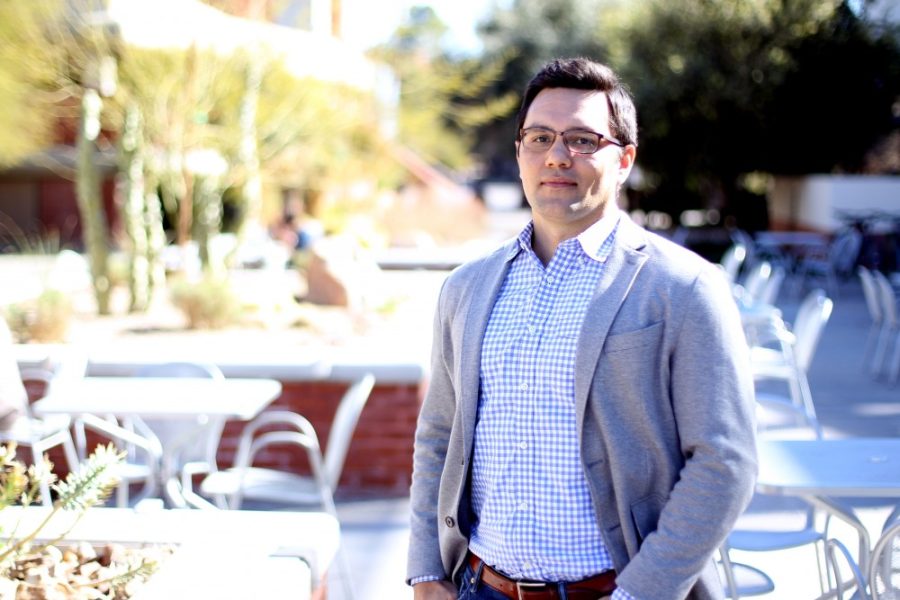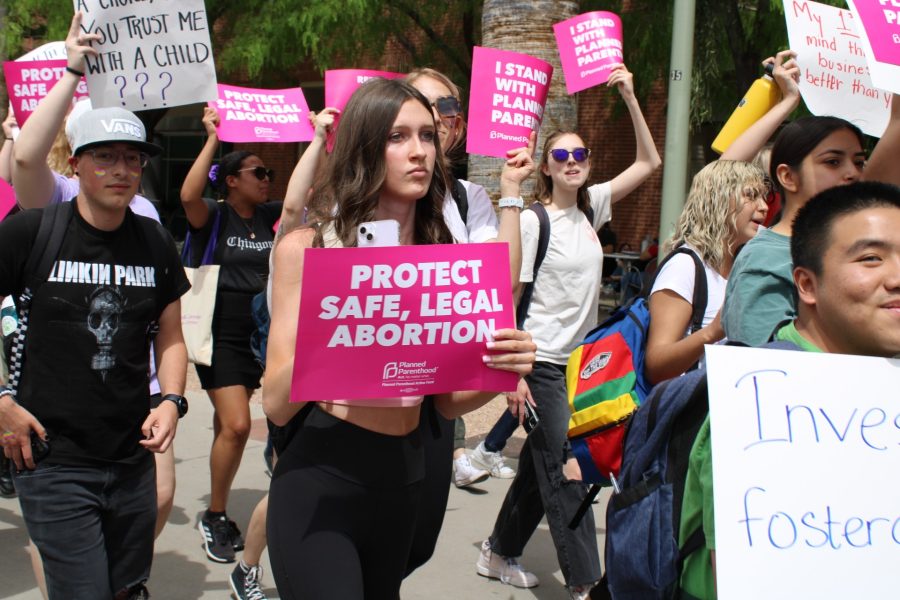UA adjunct professor James Villarreal is considering a bid for Arizona’s 3rd District seat. The Raytheon engineer says his team is in the exploratory phase right now as they analyze data, looking at questions of cost and tactic.
If he chooses to run, Villarreal will be running as a democrat against 14-year incumbent and fellow democrat, Raúl Grijalva, in the August election.
The rocket scientist, who holds a doctorate in aerospace, aeronautical and astronautical engineering from Arizona State University, has seen success in his field.
In 2012, he was named one of Tucson’s 40 Under 40 for his work as a young leader at Raytheon and his involvement with charity. Villarreal took part in several outreach programs in both Tucson and Phoenix that work with elementary schools and teach kids how to build and launch small rockets.
Villarreal’s passion for aerospace engineering is evident, as is his love for both of his current jobs. He referred to his UA rocket propulsion class as “How to Make Fire 101,” and said he loves being an aerospace engineer.
“It’s way more fun than it should be,” Villarreal said. “The fact that they pay me for it is just ridiculous.”
Villarreal grew up intimately acquainted with political dealings, having been raised in the home of a superior court judge and a lawyer; but his parents encouraged Villarreal to follow his heart and stay away from law. Now, as Villarreal is faced with an opportunity to run for Congress, he says he’s still not interested in politics.
“No, I think I’m more interested in problems than politics, so this opportunity kind of came up and I was looking around, you know, I’m an engineer, I look at the numbers and we have some serious issues down in our particular community,” Villarreal said.
Two main issues for Villarreal are jobs and education.
In January, education journal EdWeek ranked Arizona 45th in quality of education in its 20th annual nationwide education assessment. Arizona’s education system remains a priority for Villarreal, who has gone through its public schools and taught at two of its three state universities: ASU and UA.
Villarreal grew up in the small town of Florence, Arizona, perhaps best known for its state prison. He went to a small public high school from which he said few kids went on to college, but Villarreal always knew he would go on to college. It was something his parents ingrained in him.
If he were to run and become a representative, Villarreal said he would like to “untie” the hands of teachers working in K-12 schools who are bound by standardized tests and other government-imposed standards.
“Go talk to a teacher for 10 minutes and ask them how they develop a curriculum in their class and it’s actually pretty sad,” Villarreal said. “It’s a hard way. We’ve taken away their ability to focus on what they’re good at.”
As for higher education, Villarreal believes the state needs to be pressured to fund its universities at a higher rate.
The burden of paying for an under-funded education system is being placed on students who, in turn, are seeking out student loans and passing the burden off on the federal government, according to Villarreal. He said he is still paying off student debt from his college days.
If elected to office, Villarreal said he would work on creating new jobs in his district. He believes the unemployment rate in Arizona is higher than it should be.
Arizona’s unemployment rate was 5.8 percent in December 2015, according to the Bureau of Labor Statistics.
“I think there’s a lot of intellectual capital here that you can harvest through good education and build that up, and then you need to have the jobs ready to support them,” he said. “There are plenty of ways to bring jobs into this area, there’s a lot of new markets you can start working on.”
Other ideas and policies are still at work, as his team looks at the big data and decide whether to jump into the 2016 race.
Their final decision will be announced in April.
Follow Michelle on Twitter









